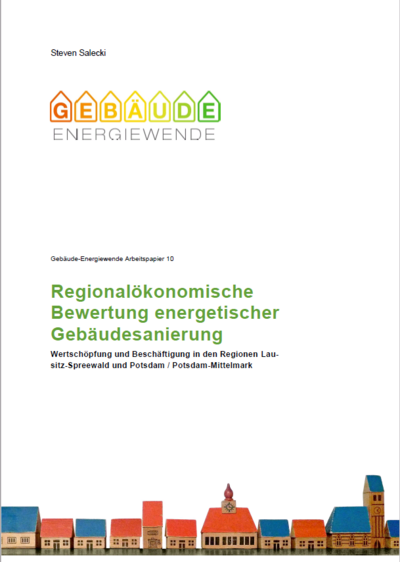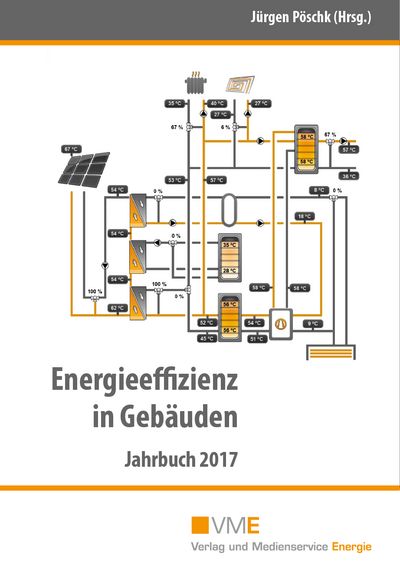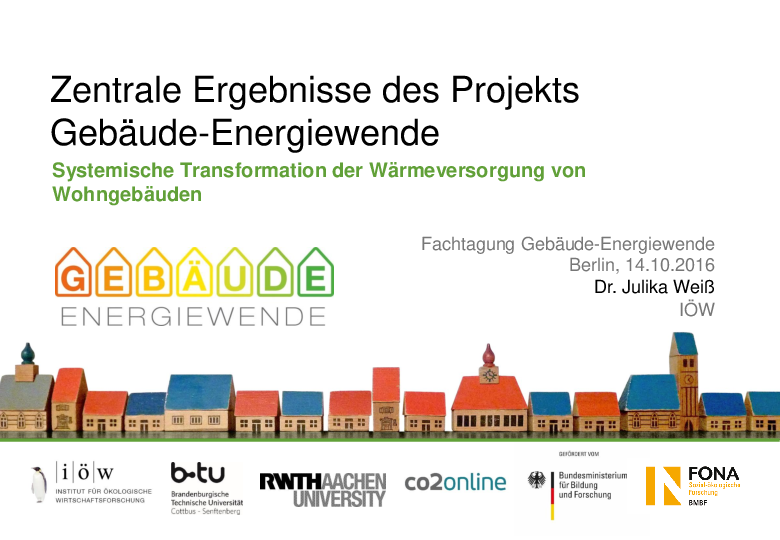Systemic Transformation of the Energy Supply in the Existing Housing Stock Sustainability Assessment of Different Refurbishment Options in Residential Buildings in Two Model Regions
The central objective of the project is to identify possible development pathways for heat supply in the existing housing stock, which take into account social needs, are accepted by stakeholders, and enable a reduction of the primary energy demand of at least 80% in a socially and ecologically beneficial manner. The project will thus examine privately owned single family dwellings as well as multifamily dwellings, which make up for a large amount of the existing housing units. The analysis will focus on two regions in Brandenburg with heterogeneous growth dynamics (Havelland-Fläming and Lausitz-Spreewald). The consideration of regional influence factors makes it possible to determine solutions which are preferential from a economic and ecological perspective regarding local conditions. Besides an evaluation of the development pathways the project will further generate knowledge on the motives and requirements for action of homeowners and tenants, thus addressing the question of societal requirements. Furthermore the research project will not only look into energy demand data, but also into energy consumption data thus taking into account the problem of the rebound effect, characterized by user behavioral change or behavior not adapted to the new technologies. Within the project the following products will be realized: an internet based traffic light tool for refurbishment, a set of refurbishment characteristics and a policy paper. The provision of target group oriented information material for different stakeholder groups is designed to support the relevant user groups to implement and/or encourage the sustainable refurbishment.
IÖW Project Team
- Dr. Elisa Dunkelberg
- Maike Gossen
- Marlen Ihm
- Philip Luthardt
- Anna Neumann
- Andreas Prahl
- Nina Prehm
- Dr. Steven Salecki
- Dr. Gerd Scholl
- Leonie Tillmann-Mihm






